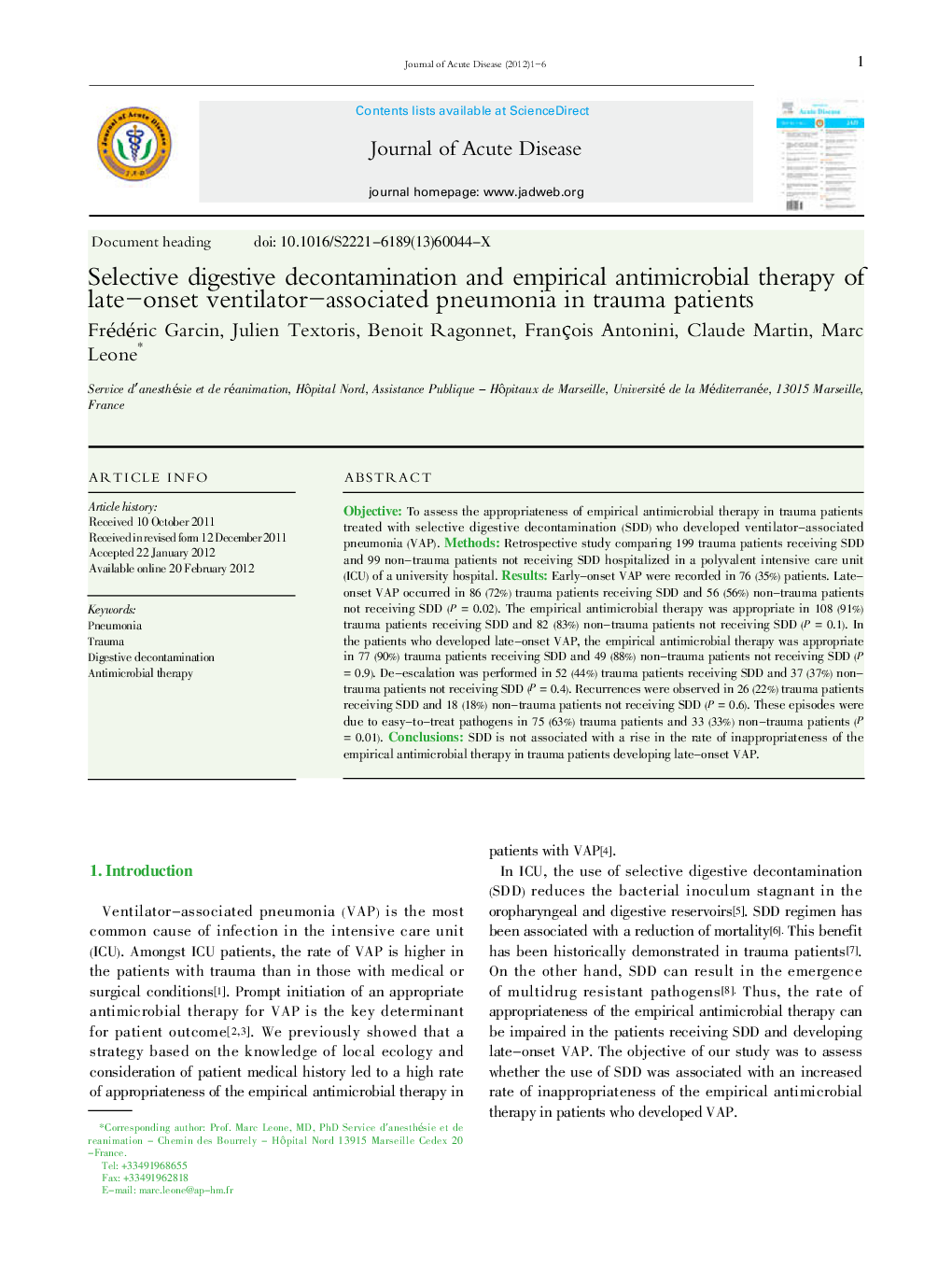| کد مقاله | کد نشریه | سال انتشار | مقاله انگلیسی | نسخه تمام متن |
|---|---|---|---|---|
| 3475243 | 1233187 | 2012 | 6 صفحه PDF | دانلود رایگان |

ObjectiveTo assess the appropriateness of empirical antimicrobial therapy in trauma patients treated with selective digestive decontamination (SDD) who developed ventilator-associated pneumonia (VAP).MethodsRetrospective study comparing 199 trauma patients receiving SDD and 99 non-trauma patients not receiving SDD hospitalized in a polyvalent intensive care unit (ICU) of a university hospital.ResultsEarly-onset VAP were recorded in 76 (35%) patients. Late-onset VAP occurred in 86 (72%) trauma patients receiving SDD and 56 (56%) non-trauma patients not receiving SDD (P = 0.02). The empirical antimicrobial therapy was appropriate in 108 (91%) trauma patients receiving SDD and 82 (83%) non-trauma patients not receiving SDD (P = 0.1). In the patients who developed late-onset VAP, the empirical antimicrobial therapy was appropriate in 77 (90%) trauma patients receiving SDD and 49 (88%) non-trauma patients not receiving SDD (P = 0.9). De-escalation was performed in 52 (44%) trauma patients receiving SDD and 37 (37%) non-trauma patients not receiving SDD (P = 0.4). Recurrences were observed in 26 (22%) trauma patients receiving SDD and 18 (18%) non-trauma patients not receiving SDD (P = 0.6). These episodes were due to easy-to-treat pathogens in 75 (63%) trauma patients and 33 (33%) non-trauma patients (P = 0.01).ConclusionsSDD is not associated with a rise in the rate of inappropriateness of the empirical antimicrobial therapy in trauma patients developing late-onset VAP.
Journal: Journal of Acute Disease - Volume 1, Issue 1, 2012, Pages 1-6